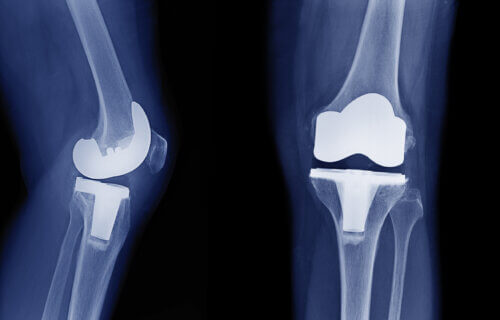QUEENSLAND, Australia — The age for knee replacement surgery is dropping due to the obesity crisis, a recent study reports. Those with the highest Body Mass Index were having surgery up to seven years earlier than those of a healthy weight, Australian scientists say.
In fact more, than half undergoing the procedure were obese, according to researchers from the University of Queensland in Australia. Women with obesity are more than 17 times more likely to have to have a knee replacement than their slimmer counterparts, the study finds.
Researchers say that of the 56, 217 patients in the study who underwent a knee replacement for osteoarthritis, 57.7% had obesity.
A 2016 review by researchers at the National Institutes of Health Depending found that about 14 million Americans battle osteoarthritis of the knee. Two million of those cases were in people under the age of 45. Another six million were between ages 45 and 65.
This latest study by scientists at The University of Queensland Rural Clinical School compared data from the Australian Bureau of Statistics’ 2017-18 National Health Survey with the Australian Orthopedic Association National Joint Replacement Registry. Srinivas Kondalsamy-Chennakesavan, an associate professor and head researcher at the school, says the effects for women were striking.
“Obese women aged 55–64 years were up to 17.3 times more likely to undergo a knee replacement than their healthy weight counterparts, while obese men in the same age group were up to 5.8 times more likely,” he explains in a statement. “Obese patients with the highest BMI ratio were also seven years younger on average when they had a knee replacement, compared to normal weight individuals.”
Adds lead investigator of the study, Dr. Chris Wall: “Modest weight loss has been found to effectively reduce knee osteoarthritis symptoms and obese patients who maintained a 10% body weight loss experienced significant improvement in pain and function. By 2030, it’s expected more than 161,000 knee replacements will be conducted annually. Urgent action is needed at a national level to change our approach towards reducing obesity or Australia may face a growing burden of revision knee replacement in the future.”
The study is published in the ANZ Journal of Surgery.
Report by South West News Service writer Jim Leffman

We must STOP this epidemic of obesity illnesses and DEATH – we MUST ban and confiscate SPOONS!
Humans are wired to find the obese and unhealthy unattractive. It’s so they don’t reproduce. Fat
Great article, but it doesn’t mention that on average, a person can only have two full knee replacements on each leg in their lifetime due to the decreasing bone material present after each surgery and the increase of osteopenia as time goes on. Obese people must realize that unlike clothes where you can just keep buying bigger and bigger sizes and keep going in life, you have a limit to how many knee surgeries you can have. So if you are obese and your knees are hurting, you had better consider getting in shape before you no longer have that option. Dr Dan
In my lifetime I have known 2 people who underwent knee replacement surgery….My buddy who needed both knees replaced, never weighed more than 140 pounds…and he is 5 foot 10 inches, another buddy of mine is roughly 6 foot even and tips the scales at a whopping 150 pounds soaking wet…..it is worth noting one of these individuals installed carpeting for a living, which is very hard on one’s knees and the other was a roofer a trade which beats the hell out of one’s body….I see these guys profession beat them up NOT OBESITY!!!!